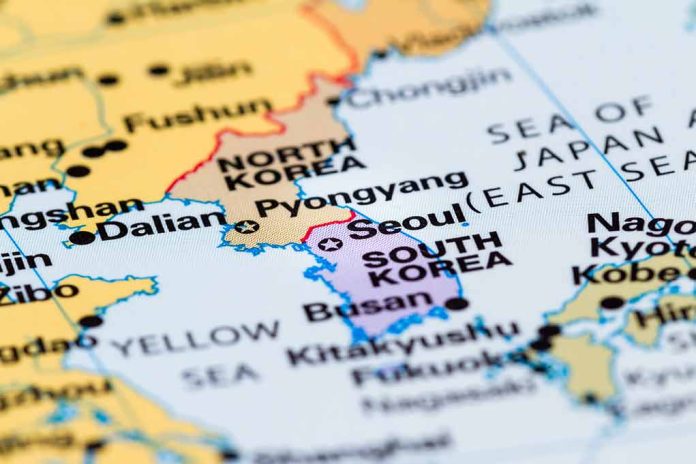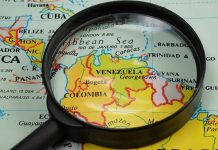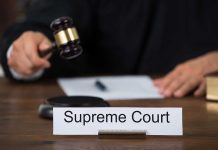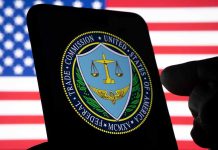
South Korea’s President Yoon Suk Yeol declares martial law, sparking nationwide protests and a swift parliamentary response.
At a Glance
- President Yoon Suk Yeol declared emergency martial law, citing threats from North Korea.
- The National Assembly voted to block the martial law declaration.
- Protests erupted outside parliament, with clashes between military forces and civilians.
- The US expressed grave concern and is closely monitoring the situation.
- President Yoon’s popularity has declined amid controversies and scandals.
Martial Law Declaration and Its Aftermath
In a shocking move, South Korean President Yoon Suk Yeol declared emergency martial law, claiming it was necessary to protect the country from North Korea’s communist forces and eliminate anti-state elements. The decision immediately plunged the nation into turmoil, with protesters taking to the streets and lawmakers scrambling to respond.
The declaration was met with widespread skepticism and resistance. Critics argue that President Yoon is more focused on targeting political opponents than addressing actual threats from North Korea. The move followed tensions between Yoon’s administration and opposition members of parliament, with each side accusing the other of attempting a power grab.
South Korean MPs and people are blocked from entering the parliament building. https://t.co/KoWw2KsyLx pic.twitter.com/slNhZ5BrYy
— Clash Report (@clashreport) December 3, 2024
Parliamentary Response and Public Outcry
In a swift response to the martial law declaration, lawmakers from both ruling and opposition parties united to block the president’s decision. The National Assembly voted to overturn the martial law, demonstrating a rare moment of bipartisan agreement in South Korean politics. Even members of President Yoon’s own party, including leader Han Dong-hoon, opposed the martial law decision.
Outside the National Assembly, chaos erupted as military forces clashed with protesters. Videos on social media showed opposition Democratic Party staff attempting to block soldiers from entering the parliament building. The scenes of conflict have heightened public and political tensions, adding to the already tumultuous situation.
International Reaction and Domestic Implications
The United States, South Korea’s key ally, expressed grave concern over the situation. Vedant Patel, a State Department spokesperson, emphasized that the US-South Korea alliance remains “iron-clad” while stating that the US is closely monitoring developments. Notably, the US was not informed in advance about the martial law declaration, raising questions about communication between the two allies.
President Yoon’s televised speech attempted to justify the drastic action, claiming the need to protect the country from “national ruin” and asking for public trust. However, his popularity has already been declining due to his refusal to allow independent investigations into scandals involving his wife and top officials. This latest move has further eroded public confidence in his leadership.
Uncertain Future and Historical Context
As the situation unfolds, it remains unclear whether President Yoon will comply with the parliament’s decision to lift martial law. The South Korean military has stated it would maintain martial law until lifted by the president, despite the National Assembly’s vote. This standoff has led to lawmakers staying in the Assembly Hall to prevent any potential attempt by the president to disband parliament.
The declaration of martial law has led to widespread concerns about civil liberties and government control over media and public expression. It’s worth noting that martial law was last imposed in South Korea during the 1980s amid student unrest, making this current situation particularly alarming for many South Koreans who remember that tumultuous period.
As South Korea grapples with this constitutional crisis, the world watches closely, hoping for a peaceful resolution that upholds democratic principles and national security.
Sources:
- South Korea lawmakers defy president and block martial law as crowds protest
- South Korea in crisis as clashes break out between civilians and military after President Yoon shockingly declares martial law
- South Korea parliament rejects president’s martial law declaration
- South Korean forces clash with crowds outside parliament after martial law declared










